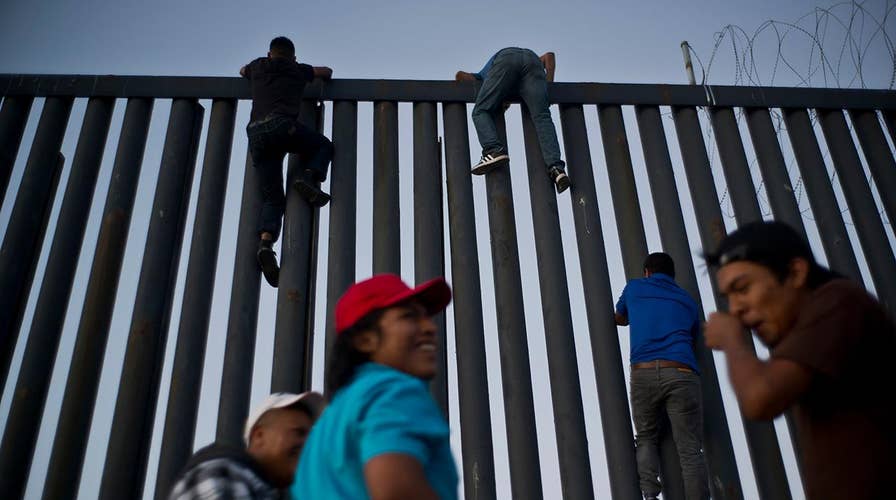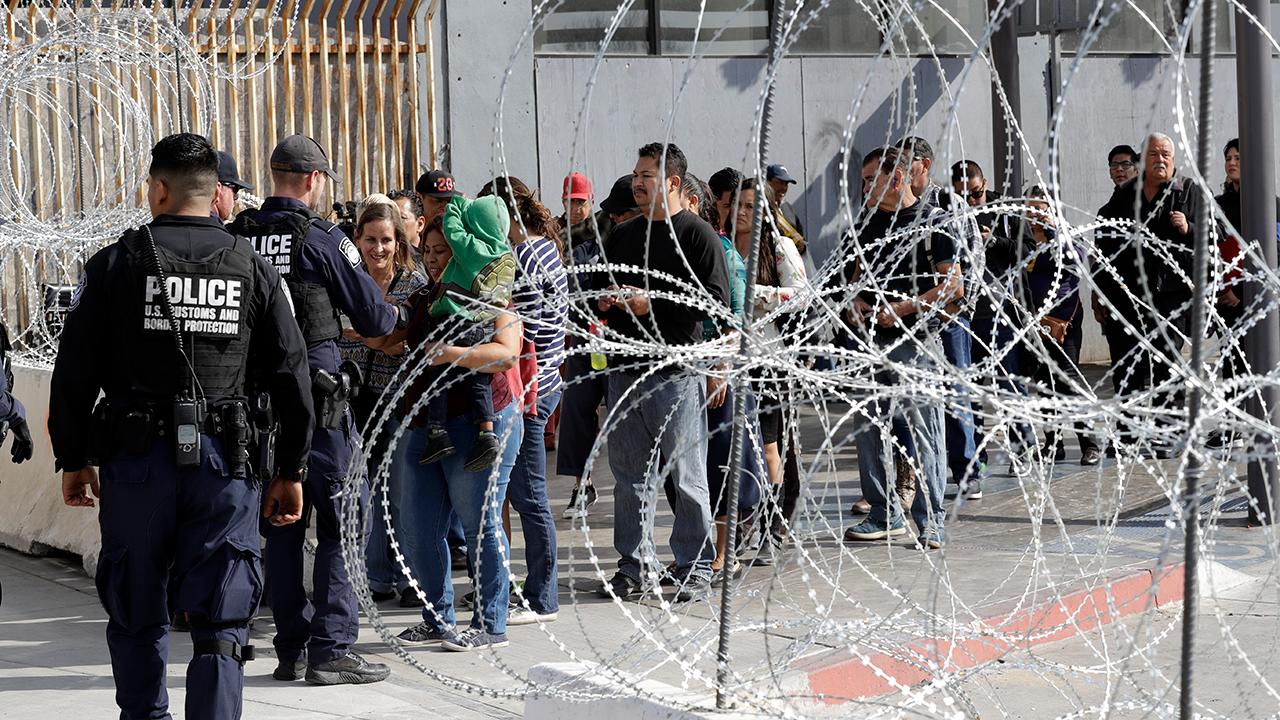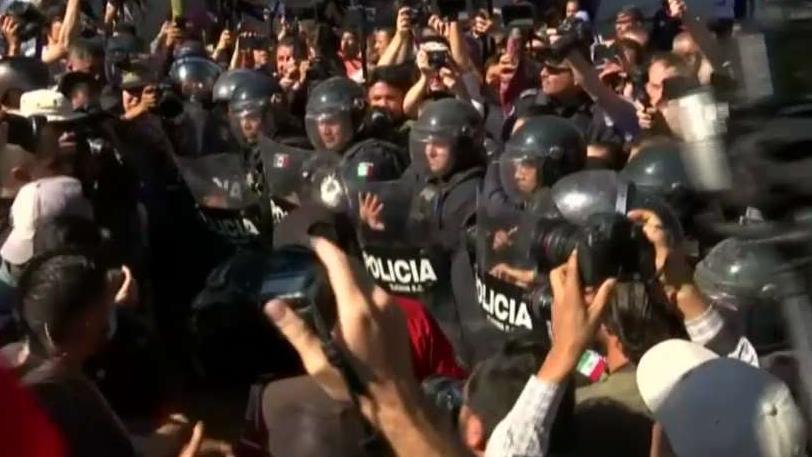Migrant caravan clashes with residents of Tijuana
Republican strategist Ashley Hayek reacts to the protests happening near the border.
The migrants from Central America who are now waiting in the Mexico border city of Tijuana waiting to learn the next steps to reach the U.S. are being given options to possibly stay in the country.
On Monday, the Baja California state government launched a month-long job fair that looks to fill positions mostly in manufacturing industries along the U.S.-Mexico border.
Francisco Iribe Paniagua, the state's labor secretary told the Arizona Republic the idea for the job fair came after Haitian migrants swarmed the Tijuana two years ago. When officials tried out a job fair program, many ended up staying in the city.
"They had also come with the purpose (of seeking asylum in the U.S.), but the reality on the ground forced many of them to stay in Baja California," he told the newspaper. "This time around we're acting more quickly, taking advantage of that experience."
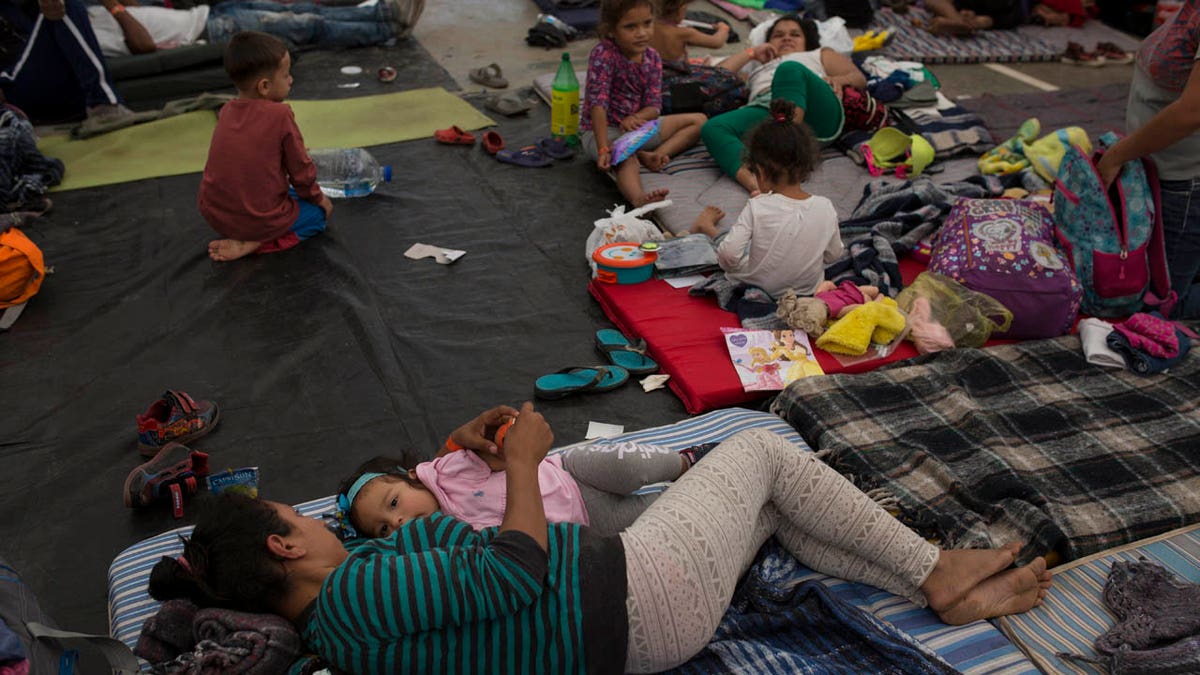
Honduran Migrant Glenia Cruz feeds her daughter Aisley, at a shelter in Tijuana, Mexico, Monday, Nov. 19, 2018. (AP Photo/Rodrigo Abd)
The job fair, which consisted of people filling out paperwork before talking to the five companies that attended, featured added police protection after a weekend of angry protests. About 500 people demonstrated in an affluent section of Tijuana on Sunday against the caravan.
The job fair, opened by government officials is open to all migrants that are now filling the city in addition to residents, will continue through Dec. 16, according to the Republic.
MIGRANT CARAVAN MEMBERS BE PLANNING 'HUMAN STAMPEDES' AT US BORDER: AID GROUP
One of the migrants at the fair told the Republic she was hoping to find a job in Mexico.
"The cold is terrible. It's really impacting me," Maritza Lara said. "But God willing, I'll be able to get a job and move out because I can't stand the situation in that place any longer."
MIGRANT CARAVAN AT US BORDER IS HARBORING MORE THAN 500 CRIMINALS, HOMELAND SECURITY CLAIMS
Tensions in Tijuana have escalated as nearly 3,000 migrants from the caravan poured into Tijuana in recent days after more than a month on the road. The federal government estimates the number of migrants could soon swell to 10,000.
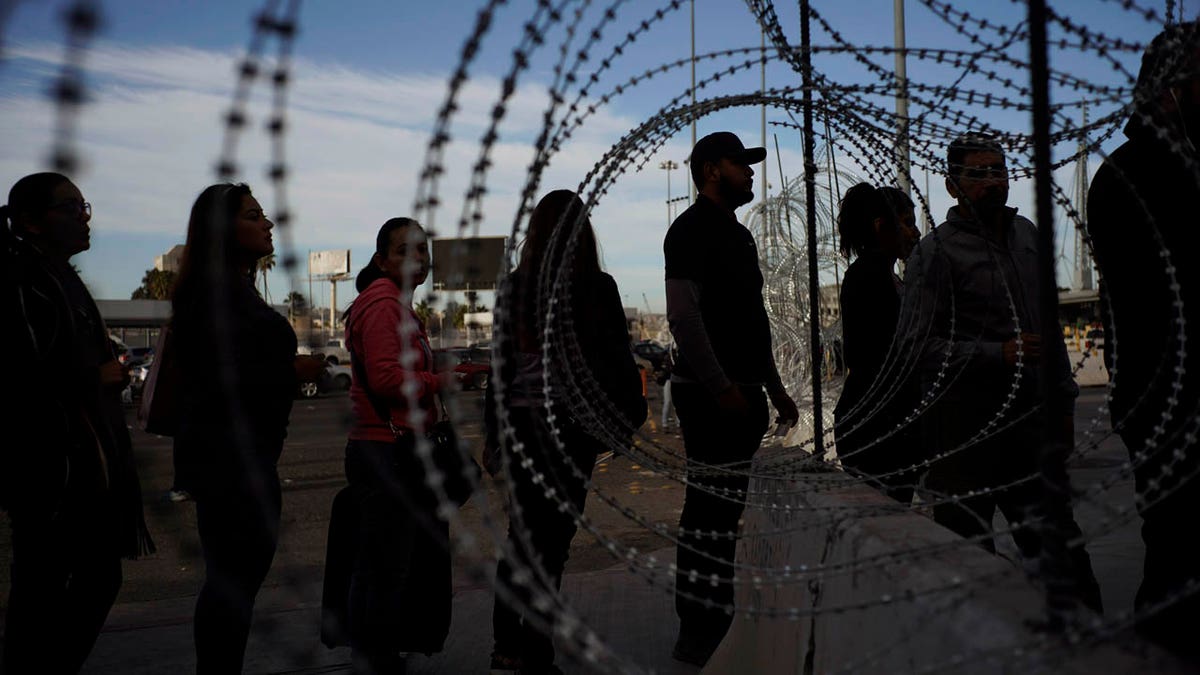
Pedestrians stand near barbed wire at a legal Mexico-U.S. border crossing as they prepare to leave Tijuana, Mexico, Monday, Nov. 19, 2018. (AP Photo/Ramon Espinosa)
On Sunday, dozens of protesters then marched to an outdoor sports complex near downtown where 2,500 migrants are staying, sleeping on dirt fields and under bleachers after arriving at the border city a week ago.
Dulce Alvarado, 28, from Lempira, Honduras, told the Associated Press she was stepping out of a corner grocery near the complex carrying her 2-year-old son when she was surrounded by the demonstrators chanting "Get out!" and "We don't want you here!"
AS MIGRANT CARAVAN REACHES TIJUANA, OVERWHELMED CITY ASKS MEXICAN GOVERNMENT FOR $4 MILLION
Many residents fear that as the migrants stay longer in the city, crime could go up. Since 2016, thousands of Haitians who also tried to get to the U.S. ended up settling here, while at the same time, Tijuana has taken in thousands of Mexicans deported from the United States.
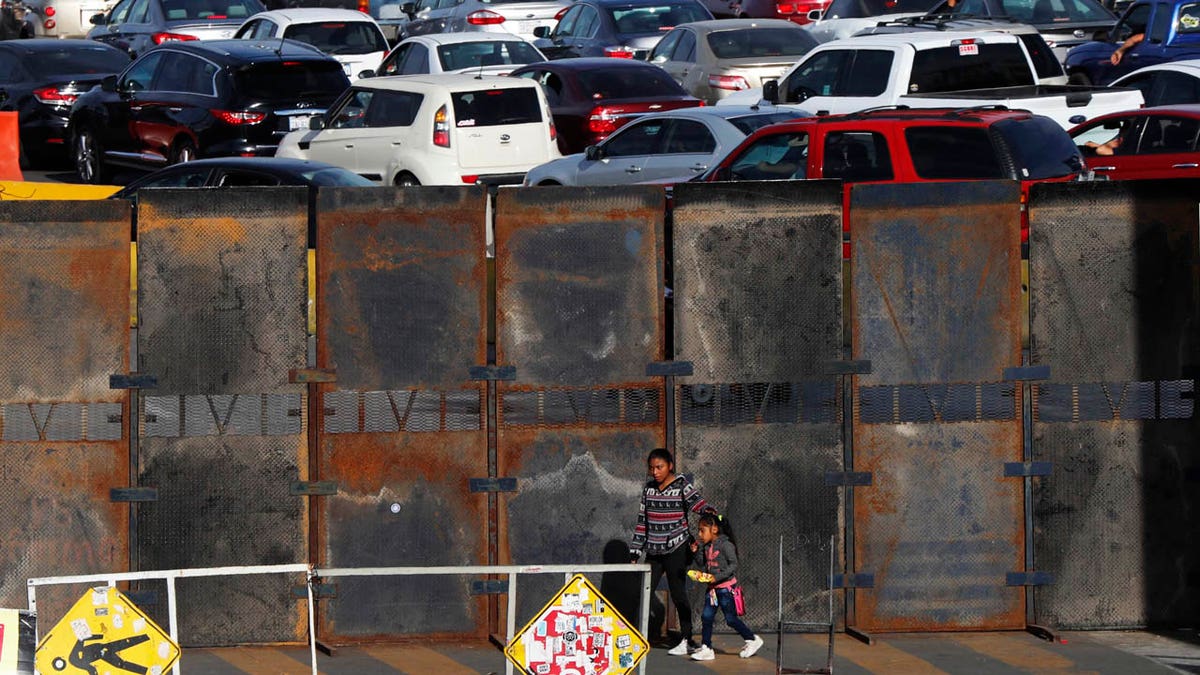
A newly erected barrier wall stands amid cars at the Mexico-U.S. border, as they wait in line to enter the U.S., as they leave Tijuana, Mexico, Monday, Nov. 19, 2018. (AP Photo/Marco Ugarte)
Tijuana also has been struggling with drug violence and some say they do not want the caravan bringing more problems. The city's mayor, Juan Manuel Gastelum, has called the migrants' arrival an "avalanche" that the city is ill-prepared to handle, calculating that they will be in Tijuana for at least six months as they wait to file asylum claims.
Officials in the U.S. have dramatically increased border security in preparation for the caravan's arrival, closing lanes at ports of entry to place cement barriers topped with razor wire that can be quickly moved to block passage should there be a mass number who try to force their way into the country.
But the lane closures have also made it harder for cross-border residents to go back and forth into the U.S. to work and shop. The San Ysidro port of entry is one of the world's busiest border crossings, with more than 40,000 vehicles and 34,000 pedestrians using it daily.
On Monday, U.S. authorities closed off northbound traffic for several hours and closed a pedestrian lane at the crossing to install more security barriers, after a tip that people were gathering in Tijuana to rush the border checkpoints.
"Waiting until a large group of persons mass at the border to attempt an illegal crossing is too late for us," said Pete Flores, director of field operations for Customs and Border Protection in San Diego.
The Associated Press contributed to this report.








































